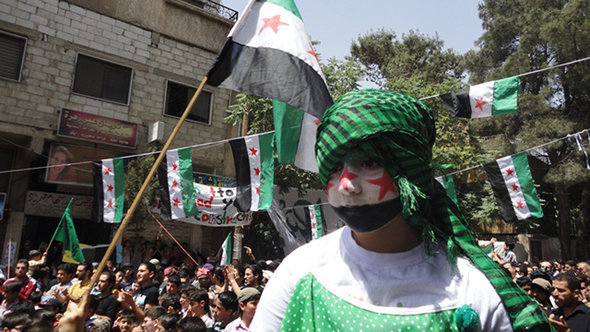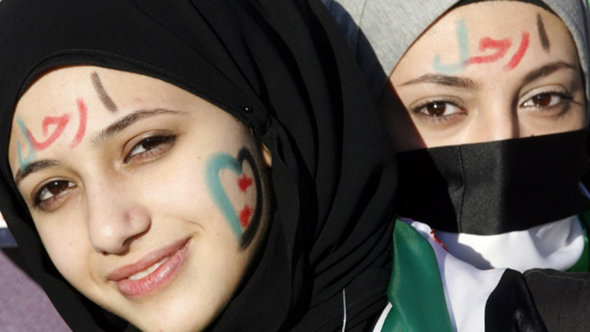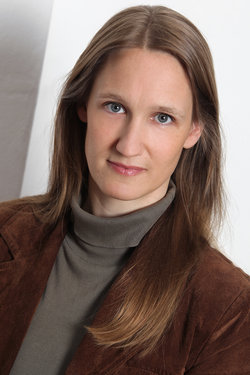Support for the Moderate Forces
Anyone following the conflict in Syria over the Internet will find themselves torn between hopeful enthusiasm and utter dismay. Various developments in the country are tugging the country in one or the other direction. Whoever gains the upper hand will certainly determine the immediate future of Syria.
On the one side are the activists, revolutionaries, deserters, and voluntary fighters, who have all sworn to support the unity of the Syrian people, repeatedly called for reconciliation, and maintained a high standard of morality. They cooperate with all groups in society in order to preserve the country's diversity, prevent acts of revenge, and to lay the foundation for democracy and pluralism.
They have built schools and hospitals in the opposition controlled city of Idlib, beautified public squares in the liberated Yabroud, sung for freedom in al-Baba, and set up signs with the message reading "Whether you are a loyalist or for the opposition, respect yourself by respecting me."
Only a part of the revolutionary reality in Syria
Local rebel leaders have condemned the human rights violations of other fighting units and have allowed lawyers to inspect their prisons.

After an attack on the Church of Saints Sergius and Bacchus in Qara, representatives of all religions declared their solidarity with the Christians of the small city. Sounds too good to be true? It may seem that way, as such stories never make it to the news – but they do happen, they are part of the revolutionary reality in Syria.
The other side of that reality is ugly and much better known. A unit of the Free Syrian Army (FSA) shot members of the al-Berri mafia in Aleppo in retribution for 15 murdered fighters. In Sarakib, rebels executed captured regime soldiers and militia men. In Tadamun, a suburb of Damascus, fighters killed a Syrian state television journalist. And the Damascus district of Mezze 86, where many supporters of the regime live, was subjected to a rocket attack.
Of course, these acts are in reaction to the atrocities committed by the regime over the past 20 months. The crimes by rebels are still dwarfed by the systematic state violence against civilians.
Nevertheless, armed resistance must limit its actions to military targets and the struggle for freedom must maintain at least the minimum standards of morality. The Free Syrian Army must behave better than Assad's thugs, otherwise they offer no alternative, but merely an unholy copy of the present horror.
Attacks on military bases, shooting down of aircraft, and the capturing of soldiers and members of the Shabiha militia are all part of the fight against the dictator. Torture and targeted executions of regime loyalists, on the contrary, are not part of the struggle. Neither are rocket attacks on residential areas. Such tactics by the rebels can only harm the revolution.
Radical groups gaining ground
Many FSA brigades are already aware of this fact and refrain from resorting to such tactics. They maintain close contact with the local population, as their members – teachers, farmers, artisans, the unemployed, and students – usually come from the same region where they fight. They work with activists from the civilian resistance and consult with regional revolutionary committees. In short, they are fighting for a better future in Syria and therefore deserve support.
Yet, they are receiving much too little support. As a result, radical groups are gaining ground. These include internationally active Jihadists and Islamic extremists, who are combat-tested, well networked, and militarily more successful than other fighters. For these reasons, they are increasingly drawing more Syrians into their orbit. This is the greatest cause for alarm.
These developments are evident in rebel video messages. Documentation of military success or the combination of a number of units display an increasing identification with Islam. Instead of the black, white, and green flag of independence, the symbol of the revolution, Islamic flags are brandished along with the chanting of oaths of loyalty to the Prophet Mohammed.
Groups aligned to al-Qaida, such as the al-Nusra Front, have intentionally maintained distance to the Syrian population, as their radical Islamic positions only arouse anxiety among most Syrians. Yet, in its fight against the Assad regime, the Free Syrian Army cannot forego their military skills, their equipment, and experience. As such, the FSA is attempting to traverse the fine line of including these radical and foreign controlled groups in the Syrian revolution, while not being co-opted by them.

In the process, time is working in favour of the extremists. In many places, especially in rural regions, unbearable misery and despair have driven an increasing number of Syrians into their arms. And as long as no other help is in sight, young Syrians will continue to take up arms in the name of Allah. As things stand, God offers them their sole relief in these dark days.
The National Coalition threatened by a loss in confidence
In order to prevent the Syrian popular uprising against the dictatorship from turning into a religious undertaking, the National Coalition must take the lead in controlling the Syrian revolutionary and oppositional forces – and do it quickly. If there is no movement any time soon, the Syrians will loose their initial confidence in the body and it will soon sink into insignificance, like the Syrian National Council before it.
The National Coalition must fill the vacuum left wherever the regime loses control. It can only achieve this if it can offer something to local activists and fighters. After all, these people have been risking their lives for months and must therefore be allowed to actively participate in the process of transition.
Yet, what has the National Coalition been able to offer to date besides a few notable opposition activists, wise words, and a diplomatic slap on the back by the Europeans and Americans? What it truly needs is money and trust. It has to relieve the misery of the Syrian people, establish a convincing post-Assad era in the liberated areas, and unite the innumerable brigades – whether cooperative or divisive – into an effective military force.
To achieve this, the National Coalition must become an efficient administrative authority by centrally collecting foreign funds and distributing these, in accordance with specific criteria, to those groups that solely serve the interests of Syria and that are not controlled from abroad.
It is for the military councils in the various provinces, in coordination with the appropriate revolutionary councils, to decide upon the need and the employment of weapons. Funds for humanitarian aid should be given to the local coordination committees and all other organizations that provide immediate assistance to the wounded, the ill, widows, orphans, and refugees.
The establishment of alternative state structures is a matter of cooperation between the National Coalition and those organizations and individuals already involved in civilian self-government and who remain committed to diversity within Syrian society. Moderation, tolerance, and the inclusion of all local residents will be rewarded, while acts of retribution will be punished accordingly.
The necessity of political pressure
It will prove difficult for sponsors to provide financing of the National Coalition merely on the basis of trusting that it will do the "right thing" with the funds. Yet, this is indispensible. The USA and Europe have argued that weapons could fall into the hands of extremists adhering to an international Jihadist agenda. This argument, however, is invalid.
These are the groups that have managed to get hold of heavy weapons, such as tanks and anti-aircraft missiles, from the inventory of the well-equipped Syrian army. Coordinated support from abroad is therefore all the more urgent, as the National Coalition is in a position to strengthen those forces fighting for freedom and democracy in Syria.
These forces do not wish to form an alliance with terrorist groups. Foreign financial assistance could thereby prove to be a moderating influence in the conflict, as opposed to aggravating the situation.

Parallel to this, the international community must band together both politically and diplomatically to formulate a coordinated plan of action for Syria. The most important precondition is to convince Russia that an alternative to Assad exists, which does not lead to an Islamic caliphate. Only when Moscow recognizes the National Coalition as a credible representative of the Syrian people can it turn away from the regime in Damascus without losing face. Only then will the path towards a political solution be open.
Without the support of Russia and confronted with a better equipped and coordinated Free Syrian Army, the regime would be forced to pull out of even more territories in order to keep hold of Damascus and the coastal regions. Simultaneous political and military pressure is required in order to force concessions from the regime. Only when Bashar al-Assad recognizes that there is no other option will he be ready to negotiate stepping down. All other scenarios are simply wishful thinking.
At present, a new state order must be established in the "liberated" north to prove that it is not chaos that follows in the wake of Assad, but truly something better.
Simply to keep out of the conflict in Syria is not an option. This should be clear to anyone who has followed developments over the past 20 months. Instead of continuing to complain about the radicalization and militarization of the initially peaceful popular uprising, the time has come to act. The National Coalition offers a transitional alternative to the Assad regime. It deserves support. In the final analysis, the Syrian people themselves, and not al-Qaida, should be given the chance to decide their own fate.
Kristin Helberg
© Qantara.de 2012
Editor: Lewis Gropp/Qantara.de
